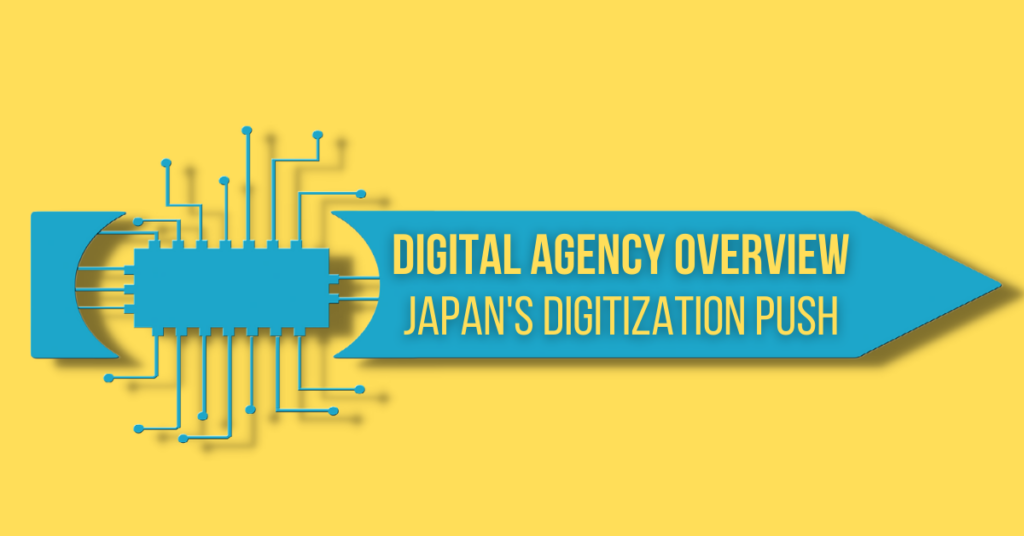
The Digital Agency Overview: Japan’s Digitization Push Gets in Gear
Last Updated: September 2021
Japan’s Digital Agency, a new government organization to centralize the government’s digitization push, began operations on Sept. 1. The agency is part of an ambitious digitization agenda, but the government has been promising to modernize its services for decades. This prompts the question: will this time be different?
Promoting the development and deployment of advanced technologies is becoming an increasingly urgent issue. With the U.S. and China decoupling in the technology sector, countries everywhere are adapting to a rapidly changing geopolitical landscape that has major ramifications for sensitive supply chains and advanced economic sectors. For Tokyo, which is squarely aligned with Washington in the U.S.-China split, digitization and a sustained technological push is imperative.
Digitization also promises big economic gains for Japan. According to the Japan Research Institute, only 12% of administrative work is carried out through online platforms. Digitizing administrative processes could save 2 trillion yen ($19 billion), as well as ease Japan’s chronic labor shortage and boost capital investment, according to the Japan Association of New Economy.

The Japanese government has been creating information technology and digital transformation plans since the 1990s, but actual progress has been slow. Different ministries are responsible for different parts of these strategies. At times these bureaucratic agencies cannot even find common ground on simple terminology, let alone implement coordinated policy.

The Digital Agency is meant to address this problem by bringing all of the government’s technology policymaking under one roof. The agency is expected to have about 600 personnel, with around 200 of them coming from the private sector. Its day-to-day operations will be led by Ishikura Yoko, a professor at Hitotsubashi University who holds a doctorate in business administration from the U.S. She specializes in business strategy and global human resources, and has worked at multiple companies and universities. Ishikura will report to a digital minister, who will in turn report directly to the prime minister.
The new agency will take on issues like increasing the issuance of My Number and setting up a centralized system to manage the personal identification numbers. It will also work with the private sector and local governments to advance digitization, implement electronic signatures and business registration, and help the Cabinet Secretariat execute Japan’s broader technological strategies.

The Digital Agency will have a budget of 542.6 billion yen for the April 2022-March 2023 fiscal year. About 530 billion yen of that will go to expenses related to the maintenance and operation of information systems. Interestingly, 182 million yen will be dedicated to cybersecurity infrastructure. The agency itself will have an operating budget of 7.95 billion yen.
The full set of digital modernization bills passed by parliament in May dovetail with some of the government’s other technology initiatives. Digital Minister Hirai Takuya said the new Digital Agency will set up branch offices in Japan’s smart cities, which are working to use technology and data to improve residents’ quality of life. The legislation also pairs well with the government’s push to bring more technology to classrooms, such as e-textbooks.
The legislative package passed by the Diet also adds to other initiatives seeking to make Japan a digital hub, such as funding for the research and development of advanced semiconductors and additional subsidies aimed at on-shoring Japan’s supply chains for sensitive technological products.
However, legislation does not guarantee success, and Japan’s digitization push still faces numerous obstacles. Private sector industry groups, in particular, look to be resistant to change. An early example can be seen in health care industry groups, which have opposed the government’s attempt to make telemedicine permanent. Government officials will need to conduct sustained outreach to these groups to gain their understanding and consent.
But the new Digital Agency will make it easier for the government to engage with the private sector in a consistent and motivated manner. Ensuring dedicated staffing to digital transformation will unquestionably make the process more likely to succeed. The Agency will also be embedded in the Cabinet Office, which will grant it some independence from other ministries not eager to cede any authority.
Digital transformation will bring significant changes to major industries, which can turn into opportunities for businesses that are well positioned to work with the government as it implements its digital and technology strategies.
The creation of the Digital Agency presents opportunities for businesses to collaborate with policymakers on a range of new digital transformation initiatives. If you are interested in learning more about how you can leverage these opportunities, please contact us.
Related Articles:

Japan Politics Now – September 2021
In Japan Politics Now, we aim to bring you Japan’s latest political developments, both foreign and domestic, and explain in brief why they matter.

Public Policy Updates – August 2021
This month’s edition of Policy Radar covers developments in Technology, Energy, Telecommunications and Trade. Month focus is on the Foreign Exchange Act.

Timothy Langley Featured In Nikkei Asia On New Digital Agency
Langley Esquire CEO Timothy Langley was quoted in Nikkei Asia on Japan’s incipient digital agency and the challenges it will face — both from the private sector and other government bodies.
